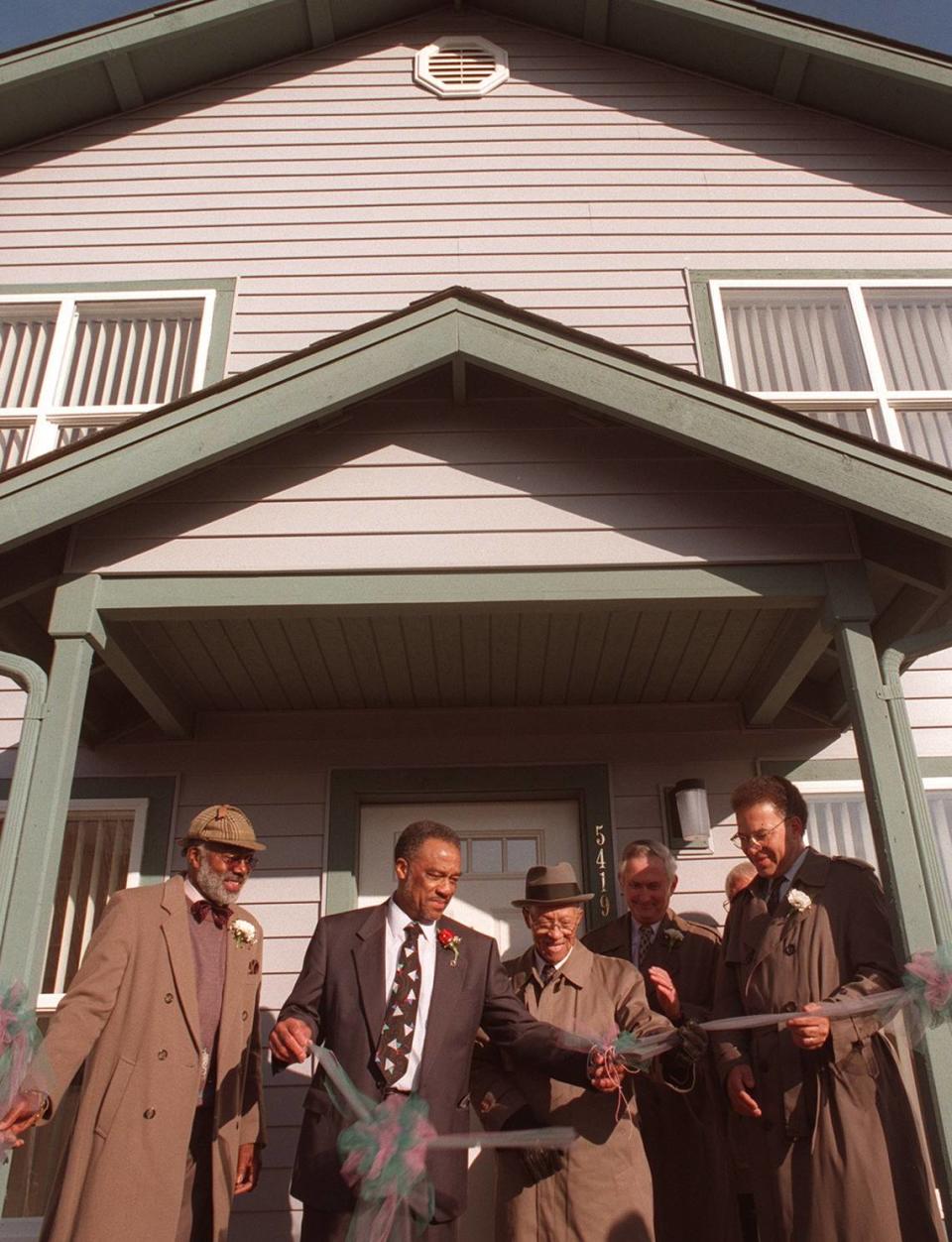‘Just a really good human being’ — Thomas Dixon, a Tacoma civil rights icon, has died
The last time I spoke to Thomas Dixon, some six years ago, he told me a story about his father.
But it was really a metaphor for the way one of Tacoma’s early civil rights movement champions tried to live his life.
“My father was a country doctor in Sparta, Georgia,” Dixon explained. “And from our house to the school house was three miles. He drove his five children to the schoolhouse every day of school. And he never passed a walking student.”
“Some days we would end up at the school house with 12 or 14 students,” Dixon continued, sitting in the same office building where he’d opened the Tacoma Urban League in 1968. “My brother and I would sit on the bumper, or on the fender, but my father never passed a walking student.”
The point of the story? That Dixon’s old man never left anyone behind.
Like father, like son.
Thomas Dixon died Wednesday at the age of 92, according to his friends and family. His long-time wife, Sylvia Dixon, told The News Tribune he passed away peacefully of natural causes at the family’s Tacoma home, where he was receiving hospice care.
Dixon, who spent more than 30 years as president of the Tacoma Urban League, is often mentioned in the same breath as groundbreaking Black leaders like former mayor Harold Moss and former city manager Jim Walton — and for good reason.
In a city with no shortage of African American icons, Dixon’s lasting legacy in Tacoma looms as large as any.
“He had a sincere love for this community, and for doing the kind of work that he was involved in,” said Sylvia Dixon, who first met her husband at one of Moss’ early career campaign events and married him a year later.
“He had a real sweet smile, and he let me know that right away,” she said.

Tacoma Urban League
Born in Sparta, Georgia in 1931, the grandson of a slave, like many, Dixon came to Tacoma through the Air Force, by way of McChord (now part of Joint Base Lewis-McChord). During more than 50 years living in the area, he raised two children with Sylvia, a son and a daughter. Dixon also had a large extended family, his wife said.
According to News Tribune archives, Dixon held a bachelor of science degree in economics and sociology from Sophia University in Tokyo, Japan, and a master’s degree in urban studies from the University of Puget Sound. In 1988, he received an honorary doctorate in public service from UPS.
Professionally, Dixon opened the Hilltop Multi-service Center in 1966, two years before he founded Tacoma’s branch of the National Urban League — where he served as president until his retirement in 1999.
During his tenure, he guided an organization that grew from just two employees to one big enough to oversee a $3.5 million budget, with more than 30 employees delivering 20 programs, ranging from education and job training initiatives to civil rights.
In 1995, the Tacoma Housing Authority named a low-income housing development in South Tacoma after Dixon.
In 2017, the 32-unit community underwent a $4.1 million renovation.
‘The Leader’
Over the years, Dixon was instrumental in shaping the city we know today while improving the lives of Tacoma’s African American residents, according to Tacoma Mayor Victoria Woodards, who followed Dixon as Tacoma Urban League president.
“Tacoma is what it is — and African Americans are where they are — because of the work Tom Dixon did,” Woodards said on Thursday. “We lost another really big giant — just a really good human being.”
Former Tacoma Mayor Marilyn Strickland, who, in 2020, became Washington’s first Black representative and the first Korean American elected to Congress, echoed Woodards’ sentiments.
“Thomas Dixon, aka ‘The Leader’, was an iconic member of our community who will be deeply missed,” Strickland in a statement provided to The News Tribune. “His positive impact on the political, economic and social well-being of our community will be felt for decades.”
Among his notable accomplishments, Dixon is credited with helping to diffuse what’s come to be known as the Mother’s Day Disturbance of 1969, easing simmering racial tensions after the rough arrest of a 19-year-old Black woman on Hilltop sparked a night of violence and vandalism.
As the Tacoma Urban League noted in a press release announcing his death, in exchange for helping to ensure peace on the streets of Hilltop, Dixon brokered a deal between the Black community and a city with a long history of police brutality and disinvestment, including increased neighborhood services and more Black representation in law enforcement.
“What I love about Mr. Dixon is his commitment to community — his commitment to the Black community — just fighting tremendously hard for racial and social justice,” said state Sen. T’wina Nobles, who today serves as Tacoma Urban League President and CEO. “He did it for decades, when it was much harder, when they had to carry protection because it was dangerous and unsafe.”
“He had an incredible vision for Black liberation,” Nobles continued. “Even then, he knew it could happen.”
A day after his death, Dixon’s contemporaries — and the younger generations of Black leaders he inspired — described him as a powerfully quiet and contemplative man who preferred to move mountains from behind the scenes.
Dixon could be blunt, and he was unflinchingly loyal, they said, but carefully building bridges in the service of the Black community was his greatest strength.
“He wasn’t a firebrand. He was almost like Moses type of a leader,” said Walton, who first met Dixon as a young activist establishing Tacoma Community College’s Black Student Union in the 1960s. Dixon would go on to serve as the best man during Walton’s wedding, held at the home of Rev. Earnest Brazill.
“Tom Dixon was genuine,” Walton said.
“And this was his calling.”

